Embarking on a musical journey with the piano can be an incredibly rewarding experience. The question of when to begin this journey has been debated for centuries, with varying opinions and perspectives. This article delves into the intricate world of piano learning, exploring the optimal age range, developmental factors, and the myriad benefits associated with this timeless instrument.
As we delve into the topic, we will uncover the intricate interplay between cognitive development, brain plasticity, and musical aptitude. We will also explore the cultural and historical influences that have shaped the perception of the best age to learn piano.
Through a comprehensive analysis of these factors, we aim to provide a nuanced understanding of this complex issue and empower individuals to make informed decisions about their musical pursuits.
Developmental Factors
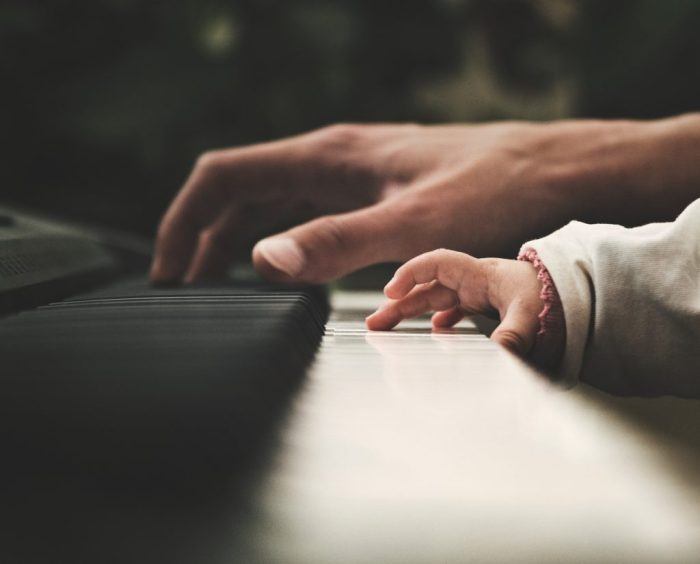
Learning the piano involves a combination of cognitive and physical skills. The optimal age range for developing these skills is between 6 and 10 years old.
During this period, children’s fine motor skills, auditory perception, and attention span are at a stage where they can effectively engage with the instrument. Their brains are also more receptive to learning new patterns and sequences, making it easier for them to grasp musical concepts.
Fine Motor Skills
Playing the piano requires precise finger movements and coordination. Between the ages of 6 and 10, children’s fine motor skills are developing rapidly, allowing them to control their fingers independently and accurately.
Auditory Perception
Piano lessons train children’s ears to recognize and differentiate between different musical pitches, rhythms, and patterns. The optimal age range for developing auditory perception is between 6 and 10 years old, when children’s brains are highly sensitive to sound and music.
Attention Span
Learning the piano requires focus and sustained attention. The attention span of children between 6 and 10 years old is gradually increasing, allowing them to concentrate on practicing for longer periods.
Brain Plasticity
The brain’s ability to adapt and change throughout life is known as brain plasticity. It plays a crucial role in piano learning, particularly during childhood. Early exposure to music stimulates the brain’s neural networks, enhancing connections and cognitive abilities.
During the early years, the brain is highly malleable and receptive to new experiences. Music training activates various brain areas involved in auditory processing, motor skills, and cognitive functions. By engaging these areas simultaneously, piano lessons foster the development of neural pathways that support musical aptitude.
Neural Connections
Piano playing requires intricate coordination between the hands and fingers, which strengthens connections between the motor cortex and the cerebellum. These connections facilitate precise finger movements, enabling the execution of complex musical passages.
Furthermore, music stimulates the auditory cortex, responsible for processing sound. The brain learns to distinguish musical patterns, melodies, and harmonies, enhancing auditory discrimination and memory.
Cognitive Abilities
Piano lessons also improve cognitive abilities such as attention, memory, and problem-solving. Reading and interpreting musical notation engages working memory and cognitive flexibility.
The need to coordinate both hands and follow a musical score simultaneously enhances attention and multitasking abilities. Piano playing also requires problem-solving skills, as students learn to overcome technical challenges and interpret musical nuances.
Musical Aptitude
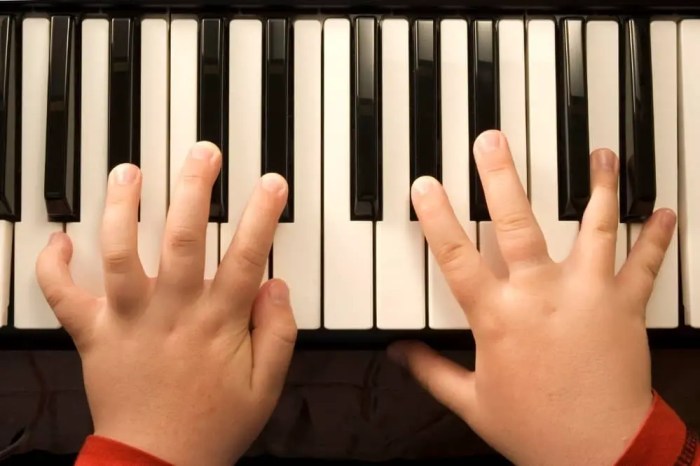
Musical aptitude encompasses a range of inherent traits that contribute to an individual’s ability to engage with music. These traits play a pivotal role in determining the ideal age for commencing piano lessons.
Among the key indicators of musical aptitude are:
Pitch Recognition
- The ability to distinguish between different musical pitches and identify their relationships.
- Influences the development of aural skills and the ability to reproduce melodies accurately.
Rhythm Perception
- The capacity to perceive and reproduce rhythmic patterns.
- Impacts the coordination and timing of musical performance.
Creativity
- The inclination to explore and experiment with musical ideas.
- Fosters a love for music and enhances the ability to improvise and compose.
Children who exhibit these traits early on are likely to benefit from starting piano lessons at a younger age, as they possess a natural foundation that can be nurtured and developed through structured instruction.
Cognitive Benefits
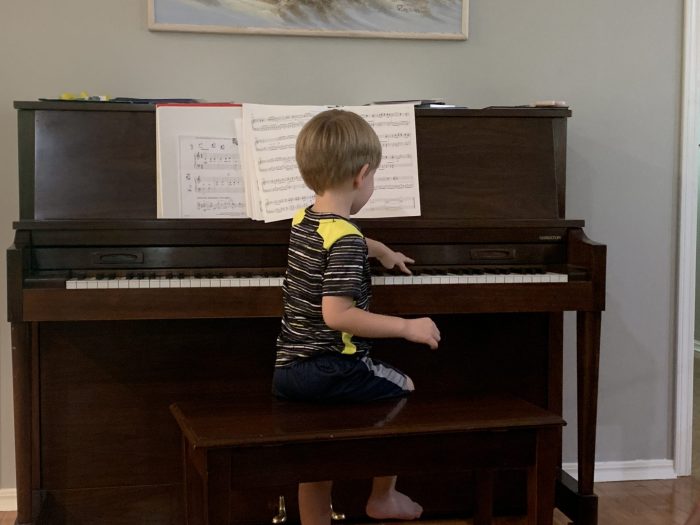
Learning the piano has been linked to a range of cognitive benefits, including improved memory, problem-solving skills, and concentration. These benefits are attributed to the complex cognitive processes involved in playing the piano, which require the simultaneous coordination of multiple brain functions.
Memory
Piano playing involves memorizing both the musical notes and the corresponding finger movements. This process strengthens the neural pathways in the brain responsible for memory formation, leading to improved recall and retention of information.
Problem-Solving
Playing the piano requires the ability to quickly analyze and interpret musical notation, which involves problem-solving skills such as pattern recognition and decision-making. These skills can be transferred to other areas of life, such as academic problem-solving and critical thinking.
Concentration
Piano playing demands sustained focus and concentration, as the player must maintain their attention on the music, their hands, and the overall performance. This ability to concentrate can also benefit other activities, such as studying, reading, and working.
Social and Emotional Benefits
Learning the piano offers numerous social and emotional advantages that contribute to a child’s overall well-being and development.Playing the piano fosters a sense of self-confidence and accomplishment. As children master new skills and pieces, they gain a sense of pride and competence that extends beyond the realm of music.
This enhanced self-belief can positively impact their overall self-esteem and motivation in other areas of life.Piano lessons also instill discipline and perseverance. Practicing regularly requires dedication and effort, teaching children the value of hard work and perseverance. This discipline translates into other aspects of their lives, helping them develop a strong work ethic and resilience in the face of challenges.Furthermore,
piano playing can promote teamwork and collaboration. When children play together in ensembles or take group lessons, they learn to listen to others, cooperate, and contribute to a shared musical experience. These social skills are essential for success in various aspects of life, from interpersonal relationships to professional settings.
Emotional Expression and Regulation
Music provides a powerful outlet for emotional expression. Through playing the piano, children can explore and express their emotions in a healthy and constructive manner. It allows them to channel their feelings into a creative and meaningful activity, fostering emotional regulation and resilience.
Stress Relief and Relaxation
Playing the piano can be a calming and stress-relieving activity. The rhythmic and repetitive nature of piano playing can help reduce anxiety and promote relaxation. It provides a way for children to de-stress and unwind, promoting overall well-being and emotional balance.
Cultural and Historical Perspectives
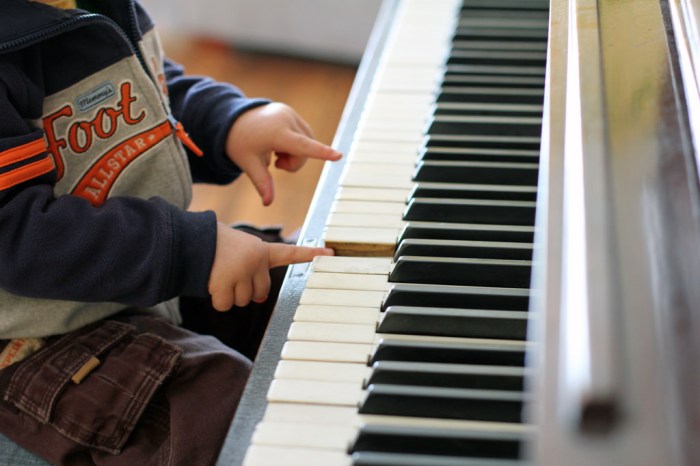
The age at which individuals begin piano lessons has varied throughout history and across different cultures. In some societies, children were introduced to the instrument at a very young age, while in others, formal training was delayed until adolescence or adulthood.
In ancient Greece, for example, music education was considered an essential part of a well-rounded education. Children were encouraged to learn the lyre or the aulos (a type of flute) from an early age. In the Renaissance period, the study of music was also highly valued, and many young people began taking piano lessons as early as six or seven years old.
In the 18th and 19th centuries, the piano became increasingly popular as a domestic instrument. As a result, more and more children began learning to play the piano at home. However, the ideal age for piano lessons was still a matter of debate.
Some educators believed that children should start as early as possible, while others argued that it was better to wait until they were older and more mature.
Influence of Cultural Norms and Societal Expectations
Cultural norms and societal expectations have also played a role in shaping the ideal age for piano learning. In some cultures, it is considered important for children to begin piano lessons at a young age in order to develop their musical talents.
In other cultures, there is less emphasis on formal music education, and children may not start taking piano lessons until they are older.
Ultimately, the best age to learn piano is a matter of personal preference. There is no one-size-fits-all answer, and the ideal age will vary depending on the individual child’s needs and interests.
Exceptional Cases
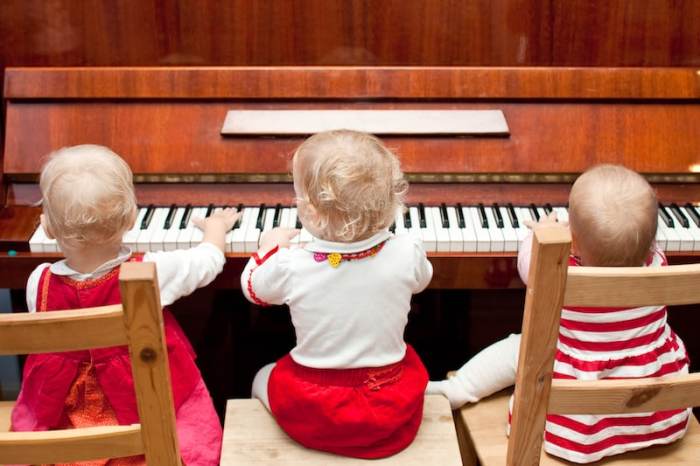
Exceptional cases of individuals who began piano learning at an unusually young or old age challenge the traditional notions of the best age to learn piano. These individuals demonstrate that talent, determination, and the right environment can overcome the limitations of age.
Factors Contributing to Success
- Early Exposure and Nurture: Some individuals show exceptional musical aptitude from a young age, exhibiting an intense interest and ability in music. Early exposure to music and a supportive environment can foster this talent and provide the foundation for future success.
- Dedication and Practice: Regardless of age, exceptional piano players share a common trait of dedication and consistent practice. They spend countless hours honing their skills, developing muscle memory, and refining their technique.
- Adaptability and Flexibility: Learning piano at an unusual age requires adaptability and flexibility. Younger learners may have smaller hands and less physical strength, while older learners may need to overcome preconceived notions or physical limitations. Successful individuals adjust their learning methods and strategies to suit their unique circumstances.
Individualized Approach
Piano learning is not a one-size-fits-all endeavor. Each child is unique in their learning style, motivation, and practice habits, which can influence the optimal age for them to start learning the piano.
Learning Style
Some children are visual learners, while others learn best by listening or doing. The optimal age for a visual learner to start piano lessons may be different from the optimal age for an auditory learner.
Motivation
A child who is intrinsically motivated to learn the piano is more likely to stick with it and make progress. If a child is not interested in learning the piano, it may be better to wait until they are older and more motivated.
Practice Habits
Regular practice is essential for progress in piano learning. A child who is willing to practice regularly is more likely to succeed than a child who only practices sporadically.It is important to consider all of these factors when determining the optimal age for a child to start piano lessons.
There is no right or wrong answer, and the best age for one child may not be the best age for another.
Long-Term Commitment
Piano learning is a journey that requires dedication and perseverance. Embracing long-term commitment is crucial for success, regardless of the age at which one begins. Consistent practice and unwavering determination can help overcome initial challenges and pave the way for musical proficiency.
Consistency and Perseverance
Regular practice is the cornerstone of piano learning. By setting aside dedicated time each day, learners can establish a routine that fosters progress. Perseverance is equally important. Facing challenges is an inevitable part of the learning process, but those who persevere through setbacks and maintain a positive attitude are more likely to achieve their musical goals.
Role of the Teacher
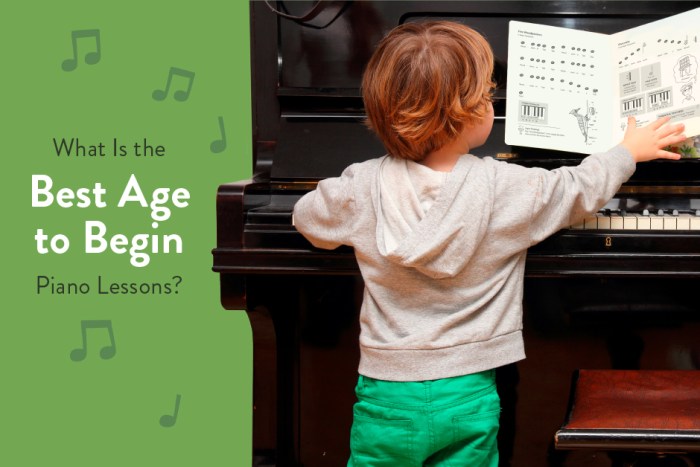
A piano teacher plays a pivotal role in unlocking a student’s musical potential. A supportive and encouraging mentor can foster a positive learning environment, nurturing a student’s passion and helping them overcome challenges.
Creating a Positive Learning Environment
A positive learning environment fosters a student’s growth and development. A supportive teacher establishes a classroom culture that encourages respect, collaboration, and a growth mindset. By providing constructive feedback, celebrating successes, and fostering a sense of community, teachers create a safe space where students feel comfortable taking risks and exploring their musicality.
Identifying and Nurturing Musical Potential
Effective piano teachers have the ability to identify and nurture the musical potential of each student. They observe students’ strengths and weaknesses, tailoring lessons to meet individual needs. By providing opportunities for performance and improvisation, teachers help students develop their musical expression and creativity.
Overcoming Challenges
Learning to play the piano can be challenging, but a supportive teacher can help students overcome obstacles. They provide guidance and encouragement, helping students develop the perseverance and resilience necessary for musical growth. By breaking down complex concepts into manageable steps and providing opportunities for practice, teachers empower students to master challenging pieces and develop their technical skills.
Inspiring a Love of Music
A passionate piano teacher can inspire a lifelong love of music in their students. They share their knowledge and enthusiasm for the instrument, exposing students to a wide range of musical genres and styles. By encouraging students to explore their musical interests, teachers foster a deep appreciation for the art form.
Closure
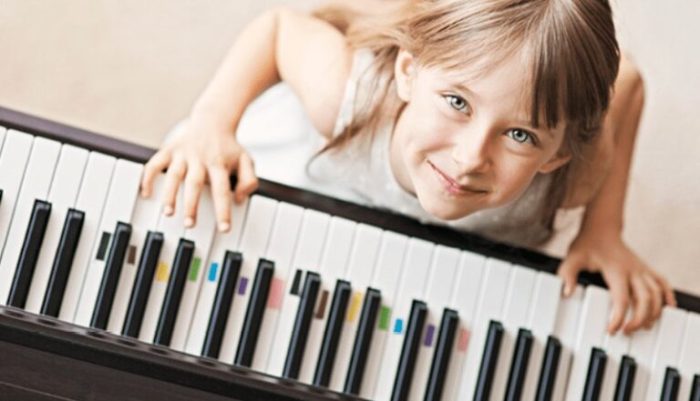
In conclusion, the best age to learn piano is a multifaceted question that encompasses a range of individual factors. While there may not be a universally optimal age, understanding the developmental milestones, brain plasticity, and cognitive benefits associated with piano learning can guide individuals in making informed decisions.
By fostering a supportive and nurturing environment, parents and educators can empower children to unlock their musical potential and reap the countless rewards that come with learning this timeless instrument.
FAQ
Is it too late to learn piano as an adult?
Absolutely not! While children may have an advantage in developing certain skills, adults bring a wealth of life experience, discipline, and motivation to their musical endeavors. With consistent practice and dedication, adults can achieve remarkable progress and derive immense joy from learning the piano.
Can children start learning piano too early?
While early exposure to music is beneficial, it’s essential to consider a child’s developmental readiness. Starting formal piano lessons too early may hinder progress if a child lacks the necessary cognitive and physical skills. It’s best to assess a child’s individual abilities and interests before enrolling them in lessons.
How often should children practice piano?
Regular practice is crucial for progress. For young children, short, focused practice sessions of 15-20 minutes daily are recommended. As they grow older, practice time can gradually increase to 30-45 minutes or more, depending on their age, ability, and commitment.